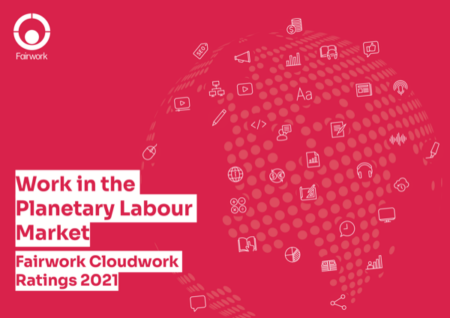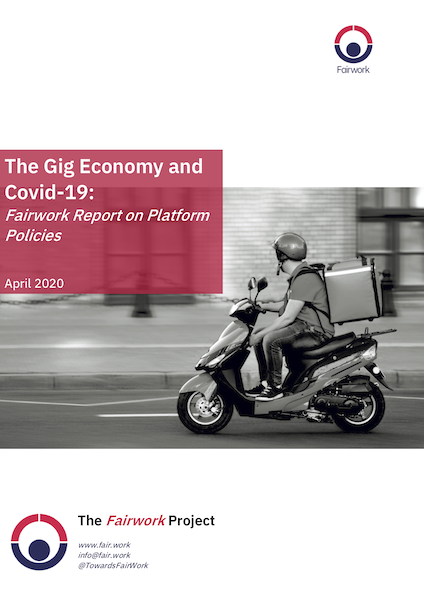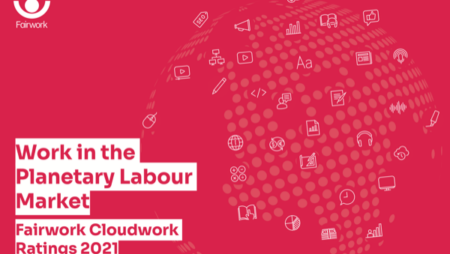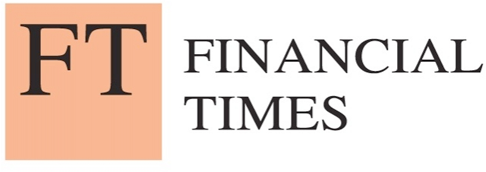


Dr Kelle Howson is a postdoctoral researcher on the Fairwork project at the Oxford Internet Institute.
Her background is in international development, globalisation and agriculture. Her research has examined the impact of ethical certification on power and governance in global agro-food networks. She received a PhD from Victoria University of Wellington, New Zealand in 2018. Her PhD thesis explored ethical certification and post-apartheid transformation in the South African wine industry, developing the concept of ethical value networks (EVeNs) to assess the extent to which certifications like Fairtrade contributed to more even development outcomes.
She also holds a Masters of Development Studies from Victoria University of Wellington, and her masters thesis examined the livelihood impact of Fairtrade certification for a coffee cooperative in Timor-Leste.
Her current work with the Fairwork Foundation explores and aims to improve labour standards for platform workers in South Africa. Building on her background in certification studies, Kelle is interested in the potential of interventions aimed at harnessing reflexive consumer power to improve working conditions.
Prior to taking up her current position Kelle served as a Senior Researcher in Prime Minister Jacinda Ardern’s Labour Leader’s Office in the New Zealand Parliament.
International development, globalisation, ethical certification, labour geographies, digital labour, Fairtrade, ethical value networks.

I conduct my research in line with the University's academic integrity code of practice.

With Dr Kelle Howson
This talk - in discussion with Dr Kelle Howson - explores the dual nature of unpaid labour in platform work.
By Kelle Howson, Hannah Johnston, Nancy Salem, Robbie Warin, Fabian Ferrari, Yihan Zhu, Pablo Aguera Reneses, Funda Ustek-Spilda, Daniel Arubayi, Srujana Katta, Shelly Steward, Matthew Cole, Adam Badger, and Mark Graham
What sort of working standards do gig economy remote workers face? This Fairwork report scores 17 platforms on the conditions they offer, and highlights the failure to offer basic standards of fairness across much of the cloudwork industry.

By Funda Ustek-Spilda, Richard Heeks, Mark Graham, Alessio Bertolini, Srujana Katta, Sandra Fredman, Kelle Howson, Fabian Ferrari, Mounika Neerukonda, Pradyumna Taduri, Adam Badger, and Nancy Salem
The COVID-19 pandemic has hit precarious gig workers particularly hard. This Fairwork report considers platforms’ responses to the virus and suggests that work remains to sufficiently protect their workers.

24 August 2022
New Fairwork report highlights best and worst employment conditions across the digital labour platforms.

15 June 2021
Millions of people across the world now work remotely for freelance and microwork platforms, often in low-income countries, that offer outsourcing services to international clients and help power AI systems.

17 March 2021

17 February 2021
The Fairwork project based at the University of Oxford says Uber’s recent white paper on the regulation of gig work in Europe downplays the responsibility of platforms to improve conditions under existing legal frameworks.

FT, 28 March 2022
Chief executive Andrew Ellis credits “passion economy” for surging demand

Reuters, 22 November 2021
From leg amputations in Thailand to hijackings in Nigeria, millions of food delivery drivers around the world find themselves torn between the desperation to make a living and the fear that each ride may be their last.

Politico, 21 July 2021
The coronavirus pandemic may have caused the worst jobs crisis since the Great Depression. And yet, for the gig workers that so many businesses and consumers have come to rely on.